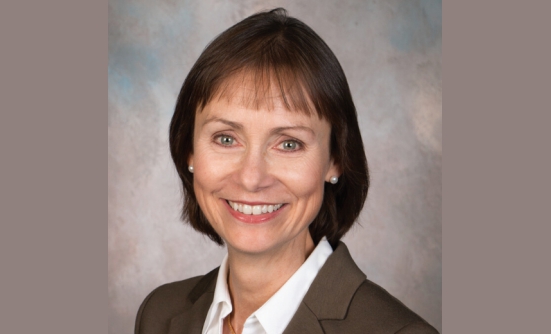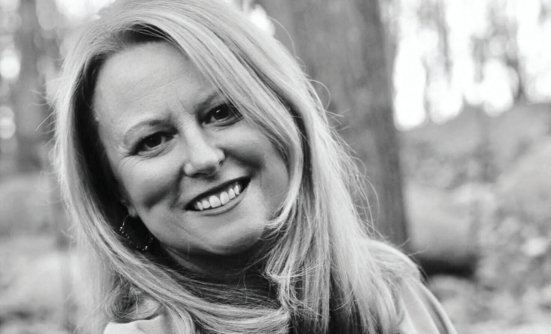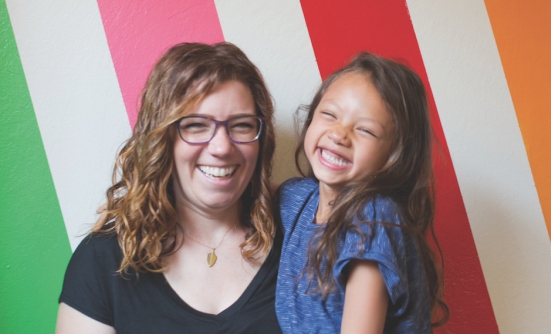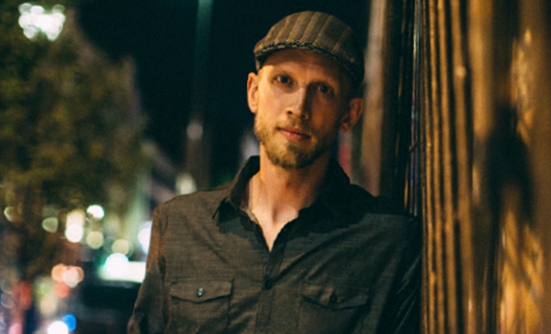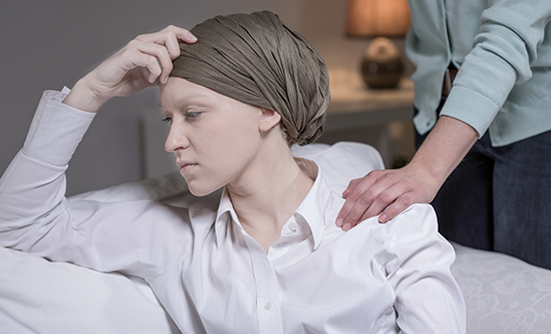
In the United States, mental illness is common. In 2017, approximately 46.6 million American adults experienced some form of mental illness, including 11.2 million who experienced schizophrenia, bipolar disorder, major depression, or another of the conditions classified as a serious mental illness that limits important activities of daily life.1
Whether an individual has a preexisting serious mental illness or develops depression or anxiety as a result of a cancer diagnosis, the finding of cancer can have a significant impact on a patient’s mental health. Up to one-third of hospitalized patients being treated for cancer have a common mental health condition, and 8% to 24% of people with cancer suffer depression.2 Although a significant amount of research has been published on the psychiatric care of patients dealing with the stress associated with a cancer diagnosis, much less has been written about the care of patients with serious mental illness.3
At the Academy of Oncology Nurse & Patient Navigators 2019 Midyear Conference in San Diego, CA, in May, Steve Pitman, JD, spoke to navigators about cancer and the mentally ill. Mr. Pitman is President of the National Alliance on Mental Illness (NAMI) Orange County [CA] Board of Directors.
NAMI is the largest grassroots advocacy organization dedicated to improving life for Americans affected by mental illness. Originally called the National Alliance for the Mentally Ill, NAMI was founded in Madison, WI, in 1979 by Harriet Shetler and Beverly Young, 2 women each of whom had a son diagnosed with schizophrenia. Dissatisfied with available services, they reached out to others who were also infuriated by the stigma, discrimination, and inadequate care they witnessed. As families joined the organization, NAMI grew and now comprises more than 500 local affiliates serving many thousands of patients and caregivers. NAMI’s stated goals are to educate, advocate, listen, and lead.1
Mr. Pitman advised that listening should be the first step for oncology navigators when treating a patient with cancer who is also mentally ill. “If a patient with cancer begins to open the door to talking about their mental illness, what we need to do is listen,” he said. “Listening is more—much more—than the practiced absence of speech. It’s more than waiting your turn to say things; it’s hearing the pain that someone is in.”
Mr. Pitman continued, “I’m a story teller. So I’m going to tell you a story about my journey with mental illness and hope that you can learn from some of the things that I have learned.”
The Stigma of Mental Illness
Mr. Pitman explained that 1 of 5 people in the United States will have a diagnosable mental illness this year but will never actually be diagnosed.
“The reason they don’t get diagnosed is because of the shame, the blame, and the stigma that’s associated with mental illness,” he said. As a result, these people will never seek treatment.
At NAMI, they say mental illness is not a “casserole disease.” With a wry sense of humor, he explained, “If you call your friends and tell them your family member was just diagnosed with cancer, you won’t have to cook for a month. Your doorstep will be covered with food,” he said. “You tell that same group of friends that your family member was just diagnosed with schizophrenia, and your friends will start to drift away.”
But it’s not because they don’t care, he added. It’s because they don’t know how to care; they don’t fully understand how mental illness works. He said the challenge in the United States is this: the sooner those with mental illness seek treatment, the better their results will be, but as long as there’s a stigma, people won’t seek treatment.
Mental Illness vs Physical Illness
According to Mr. Pitman, typically, you need only look at 2 waiting rooms in the same hospital—the one treating physical ailments is often stocked with fresh coffee, baked goods, comfortable seating, and brochures, while the psych unit has no chairs, no brochures, no coffee tables, only a sealed door.
“Now you tell me whether mental health treatment and physical treatment are the same or different?” he asked. “In my mind they’re dramatically different.”
Mr. Pitman’s brother, John, lived with schizoaffective disorder for 50 years. After being told by a psychiatrist that his mother was the root of John’s problems, his father was responsible for anything she wasn’t, and their dysfunctional family could be blamed for anything left over, the entire family was instructed to “stay out of his personal space,” and only meet him in neutral areas.
“We’re much more sophisticated about it today than we were 50 years ago. We don’t ask the questions with quite the same edge, but it starts with a series of questions about how a child was disciplined, and again it goes back to parental blame,” he said. “As long as that’s the game that we’re playing—and I do mean game, it’s a dangerous and harmful game—why on earth would anyone seek treatment?”
“I talk to parents all the time who say that their child has been handcuffed to a bed in the ER for 2 or 3 days, and then they’re told to take the child home because there aren’t enough beds,” he said. “Can you imagine what would happen in the US if somebody who’d had a heart attack was told to go home because there weren’t any beds?”
Fighting the Stigma
But he says there are signs the system is beginning to change. As it operates now, people with mental illness are often given a list of places to report to over a specified period, with appointment times and addresses. “People who are seriously mentally ill can’t do that. It’s beyond them, unless they have a navigator to lead them through the system,” Mr. Pitman said. “And I can tell you that back in Orange County, I’m going to tell them that we need navigators in the mental health system.”
A facility in Orange County is now working to develop a center that will provide all treatment under 1 roof for 90 days, whether a person is struggling with mental illness, homelessness, or addictive disorders, with private insurance, public insurance, or no insurance.
NAMI is fighting the stigma by offering group meetings attended and led by people living with mental illness. Mr. Pitman believes the biggest challenge is getting mentally ill people in the door. They assume others attending will be either drooling in a corner or psychotic killers. But once they attend a meeting, they see that people with mental illness have relationships, careers, and live independently. “It’s not difficult to get them to continue, but getting them in the door, because of the stigma, is the biggest challenge we face,” he said.
Mr. Pitman advised the navigators, “Don’t assume that you haven’t already worked with mentally ill people in oncology. You have; they just don’t talk about it.”
Focusing on the Family
In the United States, mentally ill people are often separated from their families (Mr. Pitman cited HIPAA as one of the reasons). When a person with cancer is mentally ill, and their support system has drifted away, he says it is crucial to bring the family back in. Mr Pitman stated that it is often said in medical settings that a patient “has no family.”
“They all have a family, but the system beats up on the family so badly that by the time somebody with serious mental illness presents themselves in the hospital with cancer, the family is exhausted,” he said.
When John, Mr. Pitman’s brother, was hospitalized for his serious mental illness later in life, he fought any treatment he received. He pulled out his IV and catheter, and the doctors were at a loss as to how to treat him. Mr. Pitman asked his brother if he wanted to die, and John told him that in 6 weeks in the hospital, he had only 3 visitors. No one was in the waiting room fighting for him to get out, and so John gave up hope, and died soon after.
At John’s funeral, Mr. Pitman saw at least 250 people. “I thought to myself, ‘John would really be surprised, and he’d really be pleased,’” he recalled. “And then I thought, ‘Where were you when he needed you?’ Because of the fear that people have about mental illness, his friends and family just kind of drifted away.”
Being part of a patient’s support system helps give the patient a reason to get out of the hospital. When that reason is gone, the patient, like his brother, doesn’t feel there’s much to fight for, Mr. Pitman stressed. If bringing the patient’s family back into the picture simply isn’t possible, he advocates for surrogate families. Could you act as a surrogate family member for a person you care about who has a mental illness and cancer? There is a system in Belgium that has created a thriving family environment for mentally ill people through surrogate families. “All of us do better with families,” Mr. Pitman said.
Becoming a Patient Advocate
When his brother was in the hospital, Mr. Pitman remembers times when it felt like the doctor had a stopwatch on his wrist. The nurses, however, were much more likely to actually listen and hear. “I don’t think we can minimize the value of listening,” he said.
He offered an example of a psychotic patient hearing voices. Most of us would feel the natural urge to tell that person, “It’s in your head. There are no voices. Stop it.”
“Well, he’s still hearing the voices, and at about the fifteenth time I say that to him, he starts to conclude that I am not his advocate, I am his adversary,” he said.
There is no place at the table for an adversary when conversations about treatment and recovery begin. The patient and caregivers should always see the navigator as an advocate. “Always; there can’t be any confusion about that,” Mr. Pitman stressed. He advised the navigators to look for an acceptable answer for the patient. “And I think the more your patients see you as an advocate, the better their outcomes will be,” he concluded.
If you or someone you care about has cancer and is mentally ill, Mr. Pitman’s words may encourage you to fight the stigma of mental illness by speaking about it with friends, family, and an oncology navigator.
Reaching Out
Dr. Kelly Irwin is a psychiatrist at the Massachusetts General Hospital Cancer Center and Schizophrenia Program and founder of the Collaborative Care and Community Engagement Program in Psychiatric Oncology, an ambitious program that uses a team approach to identify and treat cancer patients who are mentally ill.
“Once a person with mental illness is diagnosed with cancer, they are less likely to get stage-appropriate treatment,” she said, and noted that patients with severe mental illness are much more likely to die of their cancer. “We need to change that,” she said.
Dr. Irwin’s pilot study has shown signs of success. Mentally ill patients who previously refused to be treated for their cancer have accepted needed surgery and radiation, and there is evidence that collaboration between psychiatrists and oncologists will improve outcomes for people trying to cope with cancer and severe mental illness.4
If you need information about coping with cancer and mental illness, resources are available. Ways to get help include talking with a navigator or other member of the oncology team, joining a support group, and learning more about mental illness.
Resources for Patients and Caregivers
- The National Institute of Mental Health Information Resource Center
Phone: 1-866-615-6464
Hours: 8:30 am to 5 pm ET, Monday-Friday; Available in English and Español
Website: www.nimh.nih.gov/health/statistics/mental-illness.shtml - Mental Health America
Provides news, information, and programs designed to promote mental health. A self-test for screening is available at https://screening.mentalhealthamerica.net
Website: mentalhealthamerica.net - National Alliance on Mental Illness (NAMI)
Among its many offerings is NAMI Homefront, a free online education program to assist service members, veterans, and their families. Provides sites of local support groups
Website: nami.org
References
- Mental health by the numbers. National Alliance on Mental Illness (NAMI) website. www.nami.org/learn-more/mental-health-by-the-numbers. Accessed August 9, 2019.
- Cancer and mental health. Mental Health America website. www.mentalhealthamerica.net/conditions/cancer-and-mental-health. Accessed August 14, 2019.
- Nierenberg AA. When people with serious mental illness get cancer. Psychiatr Ann. 2018;48:543.
- Mental illness and cancer: how one affects the other (part one). Mass General Cancer Center. Boston Magazine website. www.bostonmagazine.com/sponsor-content/mental-illness-and-cancer-how-one-affects-the-other. Accessed August 14, 2019.







